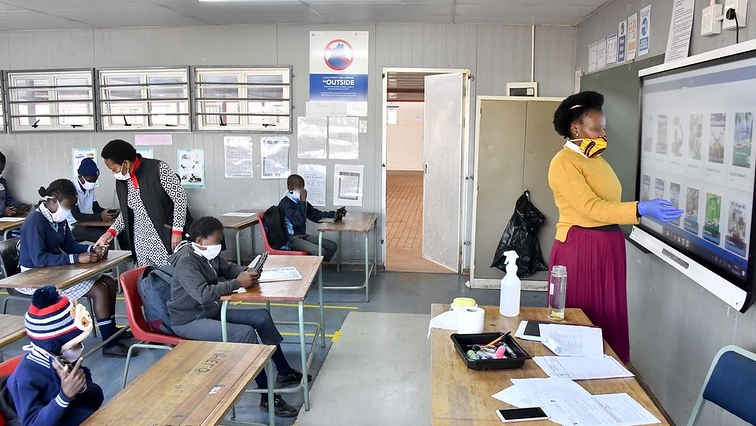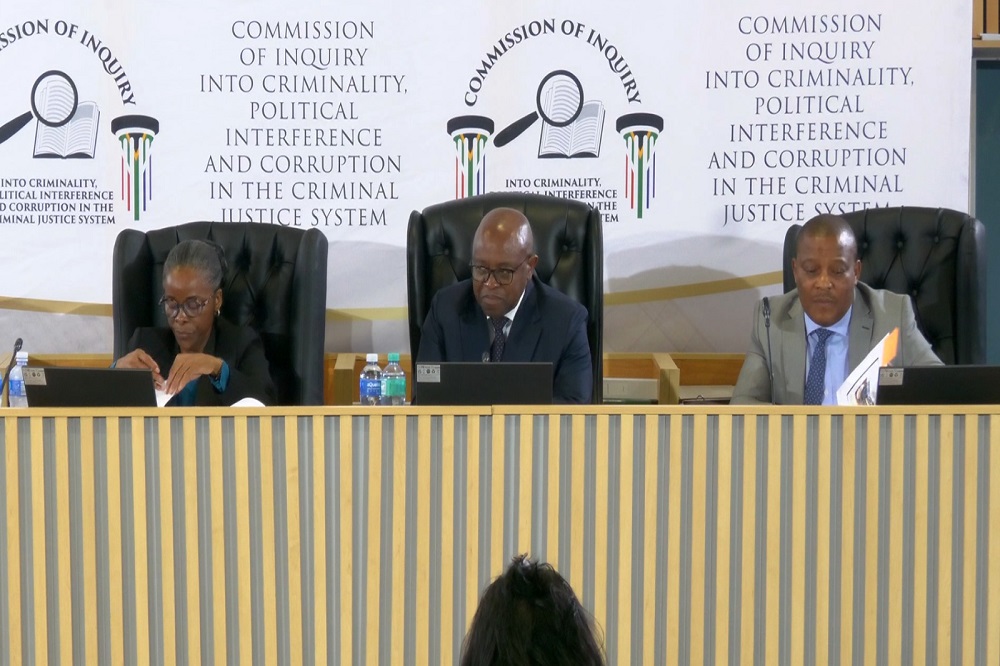-
[FILE IMAGE]: Learners in class.
The Department of Basic Education says over 200 000 assistant teachers have been deployed to schools across the country to help ease the daily workload teachers face.
This follows a shocking study by Dr. Heleen Hofmeyr, which revealed that 70% of teachers cite excessive administrative duties as the primary cause of their stress.
Department spokesperson Elijah Mhlanga says overcrowding, particularly in rural and township schools, remains a serious concern, as the demand continues to outstrip the number of classrooms and teachers available.
“We know that the shortages that we have are not that we do not have the need but because we do not have the funds to employ all the teachers that we need in the system so what we don’t have is the money to employ all the teachers in the schools so that we are able to provide every classroom with a teacher and relief teacher where needed for us to be able to run a successful basic education system in the way we wish to run it but we continue to work with stake holders, teacher unions, SGB associations where they are able to employ teachers using the funds that they are able to fundraise.”
Survey reveals stressful conditions for teachers: Dr Keitumetse Mashego
The research was done by a Postdoctoral Research Fellow at Stellenbosch University, Heleen Hofmeyr. The Department of Basic Education acknowledges that there are challenges within the education sector.
It says it has taken necessary and effective steps to resolve them, however, finances are limited.
The Department was allocated just over R33 billion for the current financial year.
“We did not get enough money from the treasury. In fact, we don’t think we will ever get. We know that the country is going through fiscal constraints. We work with what we have. We don’t have the number of teachers that we need. The system is in need of teachers, and overcrowding is now a real issue which we are dealing with. We are trying to build a number of classes, but the demand is happening much faster than what we can handle in terms of the spaces that are available in our schools.”
The South African Democratic Teachers Union (SADTU) concurs with the findings of Hoofmeyr’s report. It says the role of educators is extended beyond teaching, and, overcrowded classrooms make it extremely difficult for teachers to pass on knowledge and assess learners.
SADTU’s media officer Nomusa Cembi says, “The teacher has got to look after the emotional being of a child. learners come to school with lots of problems from their homes, and the teacher has to look after that, besides the work that the teacher has to do, which is to teach and assess. In overcrowded classrooms, assessing children is quite a challenge. You find that a teacher has to teach four classes with about seventy learners each and the teacher must mark all the scripts of all those learners.”
The National Teachers’ Union (NATU) also weighs in on the findings of the research. It has some suggestions to lighten the burden and strain on teachers.
NATU Secretary General Doctor Ngema adds, “NATU urges the Department of Education to strengthen and expand the teacher assistant programme. We want teacher assistants to be employed permanently to help lessen administrative work, including lessening daily preparations and daily checking of attendance registers. checking and marking of homework from our teachers in schools.”
The Professional Educators Union has urged the government to increase the budget allocated to the department.
PEU President Mkhuseli Dubula says, “IF the infrastructure issues in our country and in our schools are still bad, we will continue to suffer. So the Department of Basic Education must make sure that the bias towards education. The government must stop contradicting itself and put education as an apex priority, but in terms of funding, they put it at the bottom, and this means we are not going anywhere because we have to stretch with what we have. Schools have no windows, no doors, and no water, but we expect quality results.”
Another finding is that seventy percent of teachers cite administrative duties as their primary source of stress, making it difficult to find time to properly plan lessons and support learners.
The study also found that teachers have strong geographic preferences. The Western Cape and Gauteng were the most desirable locations, while rural provinces such as Limpopo and the Eastern Cape are expected to face significant teacher shortages.











